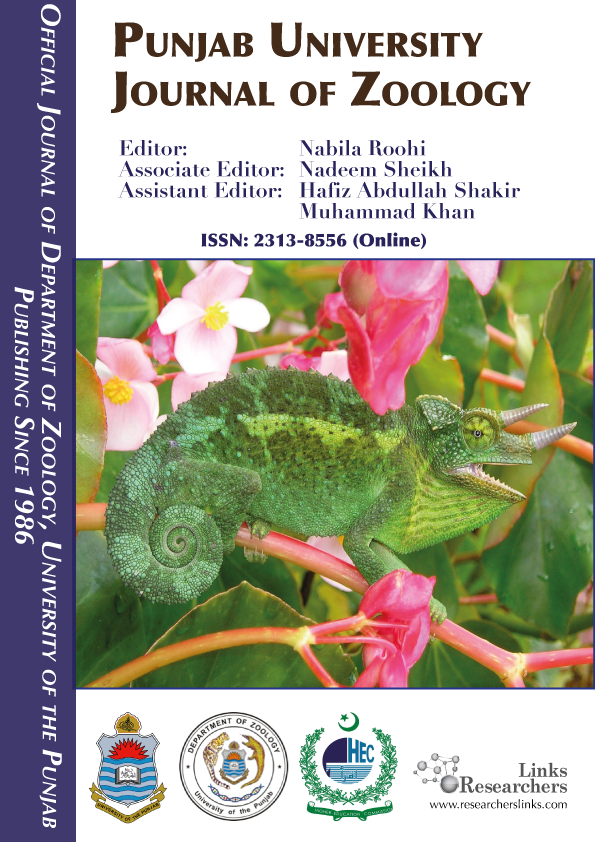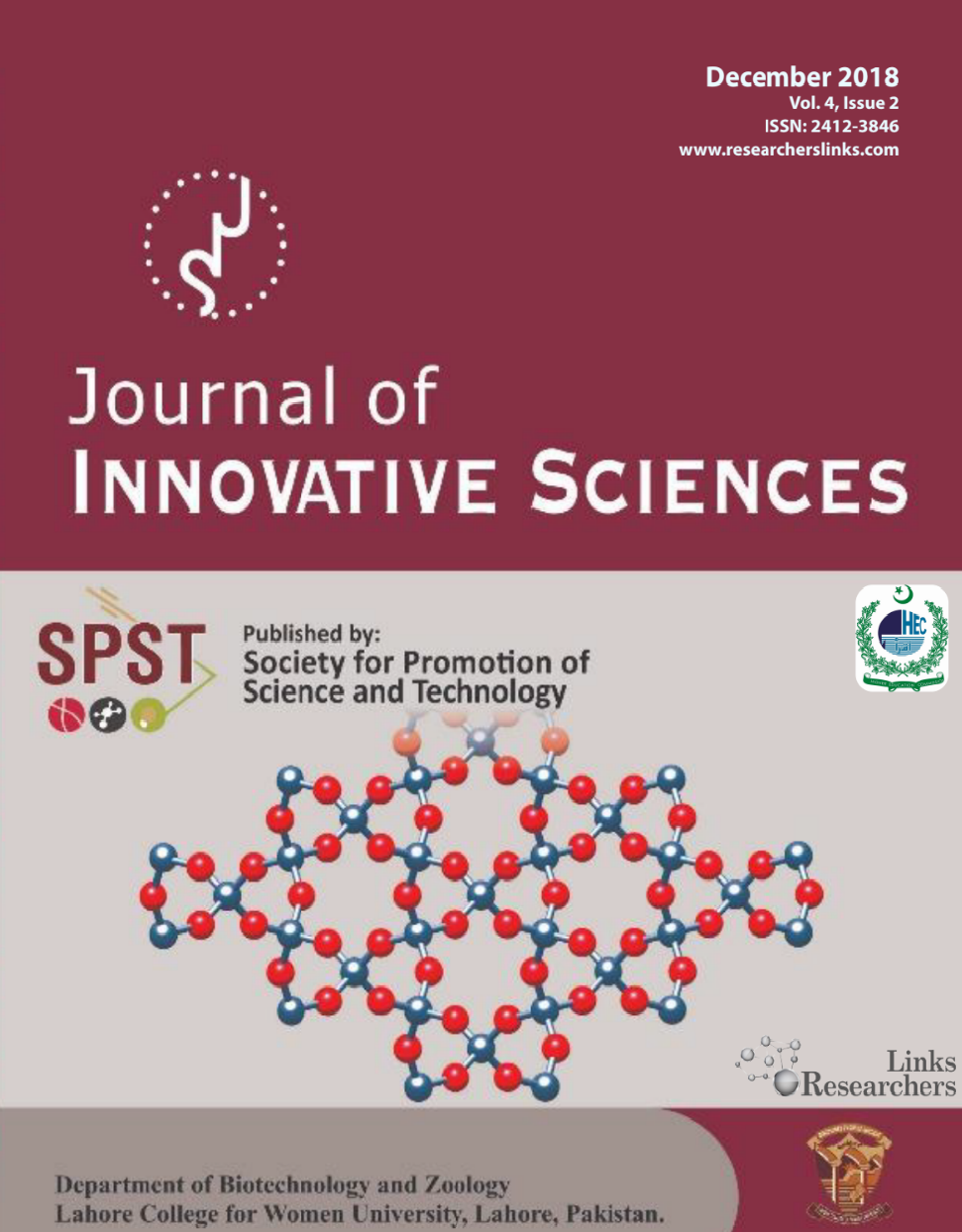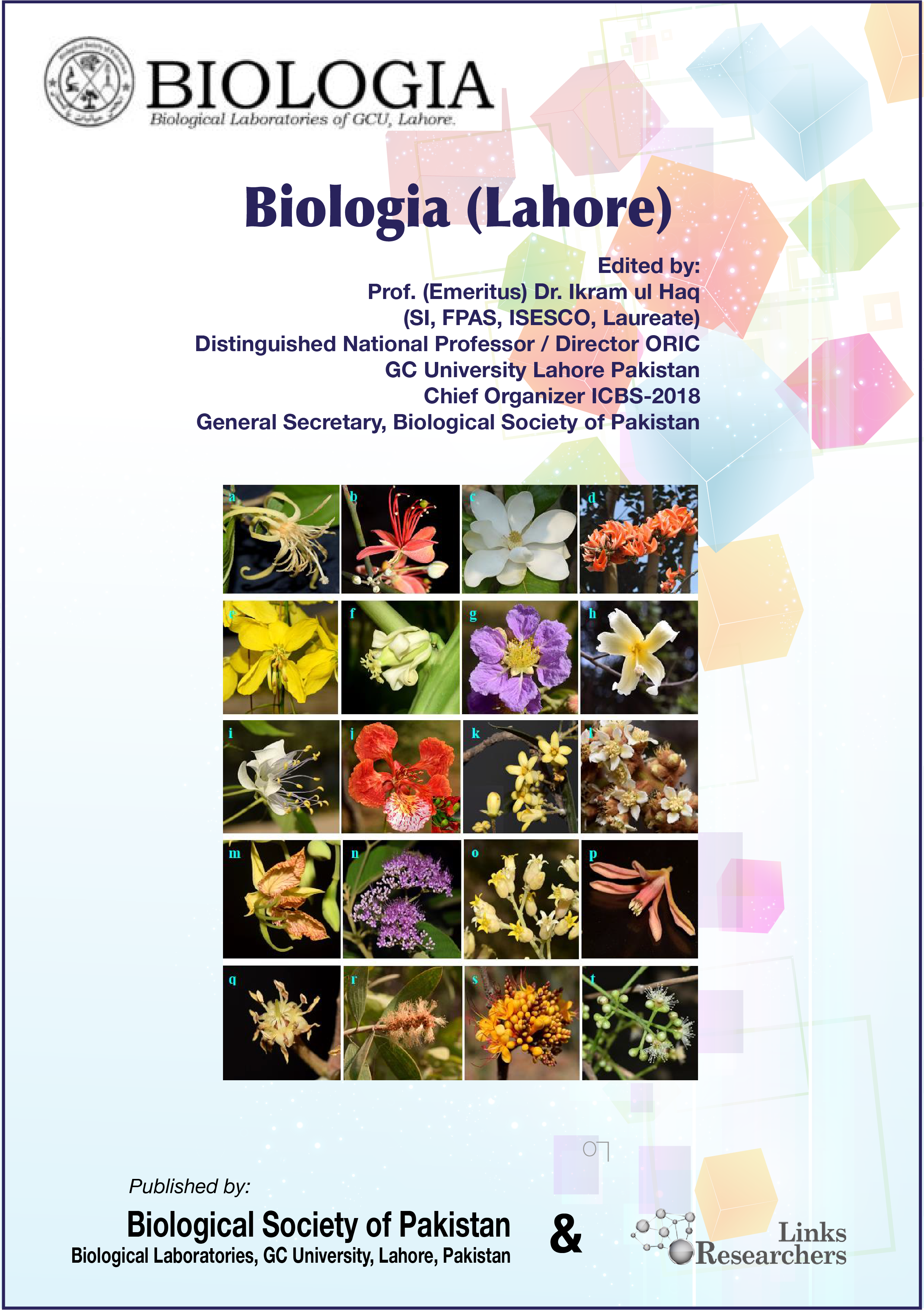Irfan Ullah and Abbas Ullah Jan
Irfan Ullah*, Abbas Ullah Jan, Muhammad Fayaz, Amjad Ali and Atta Ullah Shah
Iram Fatima1*, Imran Pasha1, Ambreen Saddozai2, Shahid Nadeem3, Amer Mumtaz4 and Saqib Jabbar4
Hamza Tariq1, Imran Hayat1, Saima Rafiq1*, Aqsa Qayyum2 and Sohrab Qayyum1
Jabeen Farheen1,2*, Simeen Mansoor1 and Maria Abid1
Rahmat Gul1*, Imran Khan1, Iftikhar Alam2, Zia Uddin1 and Zafar Iqbal3
MUHAMMAD ASLAM1*, MISBAH IRSHAD1, AMINA ASGHAR1, ASAD GULZAR1, ZAHRA NOREEN2, ABRAR HUSSAIN2, SHAHID MASOOD3, MUHAMMAD KAMRAN SHAHID1, RASHAD MEHMOOD4, KAYNAT SALEEM5 & SAJID IQBAL1
Salim Saifullah, Muhammad Ilyas, Bashir Ullah and Sanam Zarif Satti*
Kvarts Khava (1958) carried out studies on the infectious wilting (Fusariosis) in basil. The plants in the nursery were found severely attacked by a species of Fusarium causing longitudinal stripes on the stem and chlorotic spots on leaves which wilt and fall prematuiely. The pat...








